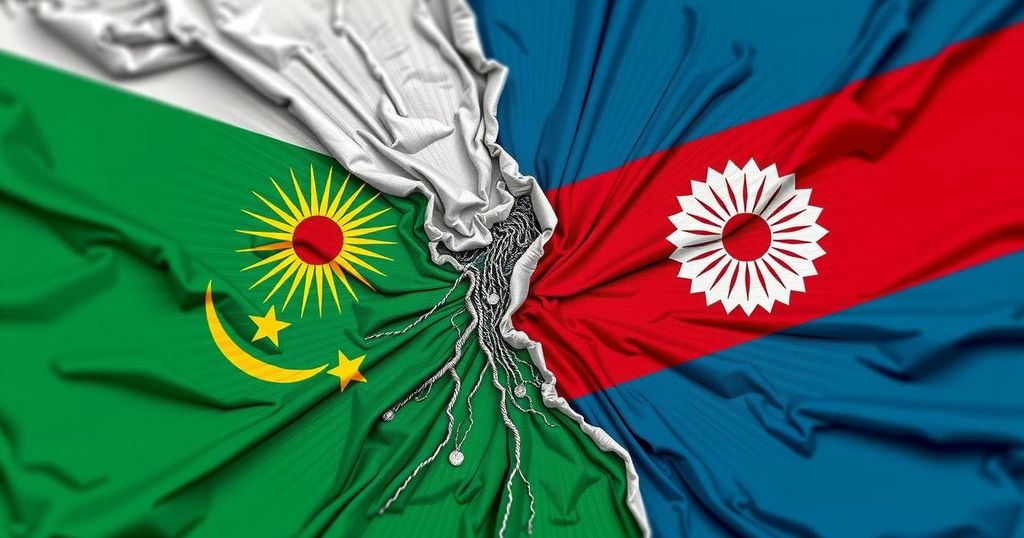Kyrgyzstan and Tajikistan Conclude Final Border Dispute Negotiations

Kyrgyzstan and Tajikistan have resolved their final border disputes through a newly declared demarcation deal. This agreement, which follows decades of violence rooted in Soviet-era policies, aims to stabilize relations and address critical resource access issues. High-level discussions have highlighted a commitment to peace amidst growing geopolitical complexities in Central Asia.
On a significant day for Central Asian diplomacy, Kyrgyzstan and Tajikistan declared the resolution of their longstanding border disputes through a demarcation agreement. This deal, finalized on Wednesday, aims to conclude the last unsettled sections of their mountainous border, a contentious issue that has resulted in periodic violent clashes since the dissolution of the Soviet Union. The recent conflict in September 2022 resulted in approximately 100 fatalities, highlighting the severity of border tensions driven by competition for water resources in this arid region.
The agreement was achieved through discussions led by the chief security officials of both nations, Kamchybek Tashiev from Kyrgyzstan and Saimumin Yatimov from Tajikistan, who met in the Kyrgyz city of Batken. Their successful negotiations reflect a significant effort to foster peaceful relations. Both governments expressed satisfaction with the meeting’s atmosphere, emphasizing their commitment to executing the necessary documentation for the border demarcation process.
The border situation has historical roots in arbitrary Soviet-era administrative decisions, which created ambiguities that have persisted since the USSR’s breakup in 1991. Water access remains a pivotal issue in this resource-scarce area, rendering such disputes even more critical amidst climate change concerns. As relations among the five ex-Soviet Central Asian countries improve, leaders from Kyrgyzstan and Tajikistan had previously engaged in dialogue during a UN summit, laying the groundwork for this deal.
Recent escalation of violence in 2021 and 2022 had displaced many individuals from their frontier homes. The dynamics of regional security are further complicated by the geopolitical landscape, with Russia’s diminished role due to its ongoing conflict in Ukraine, alongside increasing competition from China, Turkey, and the European Union to influence Central Asia.
While negotiating the border’s complexities proved challenging without access to Soviet-era cartographic documents, the current agreement marks a hopeful step towards stabilizing relationships in the region. The absence of direct involvement from Russia in this deal indicates a shift towards regional autonomy in addressing bilateral issues.
The border dispute between Kyrgyzstan and Tajikistan spans decades, primarily a result of policies established during the Soviet era that failed to account for the geographical complexities of the region. The mountainous terrain of the 970-kilometer border has presented challenges not only for demarcation but also for access to essential resources, particularly water. This scarcity has heightened tensions, leading to sporadic violence and border clashes that intensified in recent years, highlighting the urgency for a resolution amid evolving geopolitical forces in Central Asia.
The recent border demarcation agreement between Kyrgyzstan and Tajikistan represents a significant achievement in resolving long-standing territorial disputes that have led to violence and humanitarian crises. The collaboration between these two nations not only addresses historical grievances but also sets a positive precedent for regional cooperation in Central Asia. With global powers vying for influence in the region, the peaceful resolution of such disputes is crucial for fostering stability and ensuring sustainable resource management.
Original Source: 24newshd.tv








